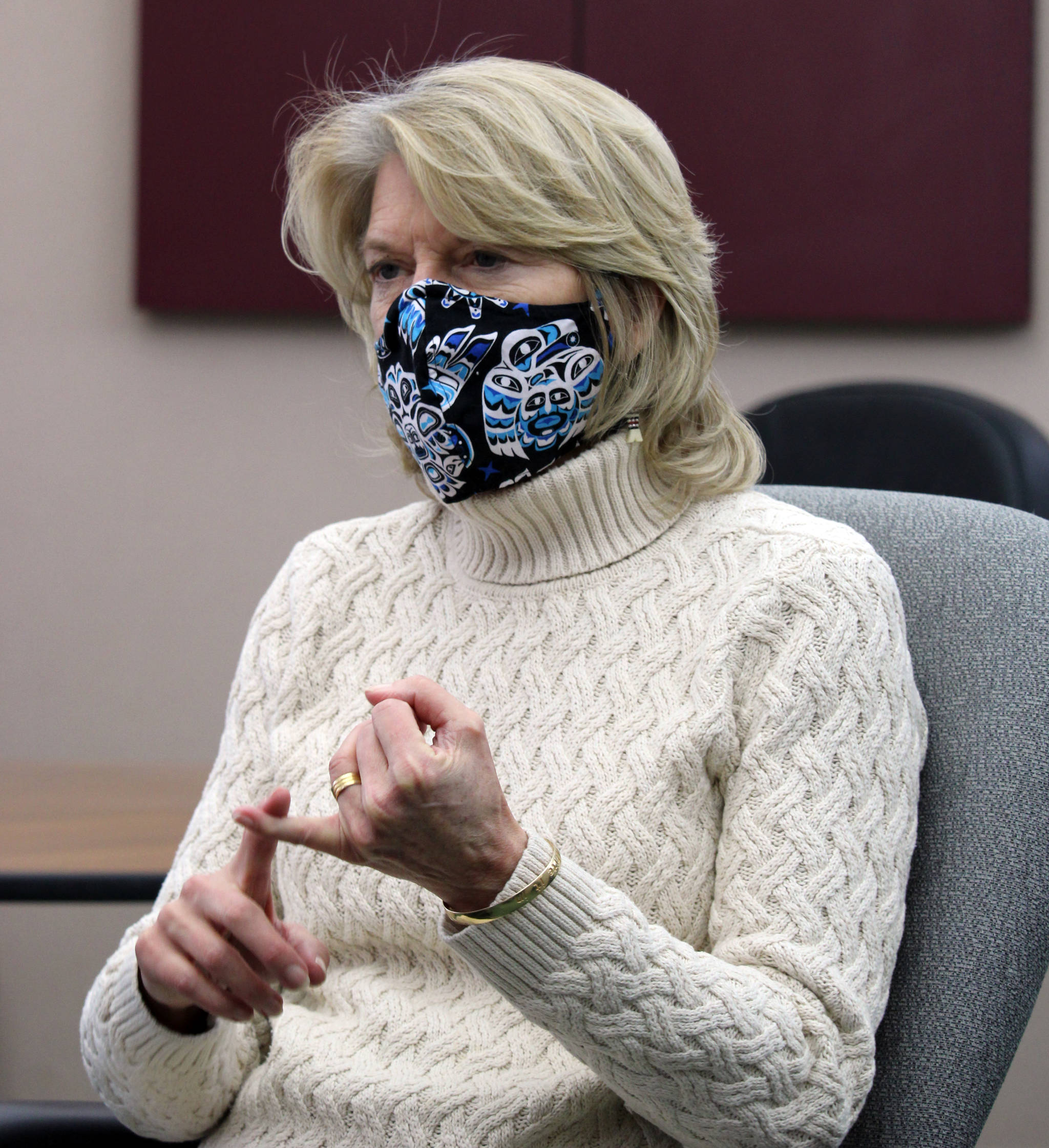Lisa Murkowski says she isn’t done with bipartisanship.
The Republican senator from Alaska said even amid increased polarization — and after an unprecedented assault on the U.S. Capitol on Jan. 6 fueled by unsubstantiated accusations of voter fraud repeated by high-profile Republicans — it’s possible for lawmakers to work across the aisle.
“I refuse to believe that bipartisanship is dead,” Murkowski said Tuesday in an interview at the Empire’s offices.
“I have to believe that bipartisanship will be an important part of legislating,” Murkowski continued. “I say that I have to believe that because if I don’t believe that and I can’t try to make that happen, it’s just not the way I operate. My reality is when you’re trying to build something that is enduring, when you’re trying to build policy that you want to stay in place beyond from one administration to another, the way that you do that is by working through the views of both sides and figuring out how you build it.”
She cited the Affordable Care Act, which was passed without Republican support, as an example. Republicans have spent years trying to dismantle the ACA, even while many of its provisions ended up becoming popular with Americans. Murkowski was one of the few Republicans who voted against repealing the ACA in 2017.
Murkowski laid the blame for political divisions on both parties.
[House on verge of organizing]
“It doesn’t make any difference which side is engaging or advancing in ways that are extraordinarily partisan,” she said. “It doesn’t help on either side.”
The insurrection at the Capitol on Jan. 6, was caused by people seeking to further their political ambitions by appealing to supporters of Donald Trump, Murkowski said. If the Republican Party becomes the party of Donald Trump, Murkowski said she doesn’t know if she will remain in the party.
“Right now, we’ve got a Republican Party that is in my view, I don’t if I want to describe it as a bit of disarray — we’re a party that is trying to find our center again,” she said. “If the Republican Party is no more than the party of a person, the party of Donald Trump and not a party of principles, that causes me to question where do I fit in that. The Republican Party was a good party, a solid party based on solid principles I identify with. We were a good party before Donald Trump and we’ll be a good party after Donald Trump.”
While her future with the GOP is an open question, Murkowski said emphatically she would not be joining the Democratic Party. The Democratic party’s principles were not ones she could fully support, she said, but it was possible to run as an independent. She pointed to her own 2010 election where she won in a write-in campaign after losing the Republican primary.
“I did not switch my party,” Murkowski said. “I’ve never left the party, but I think the party is going through a transition right now.”
Trump remains poised to influence politics, Murkowski said, either by establishing his own party or through supporting primary challenges to Republican politicians who don’t support him. Without giving any names, Murkowski said in the run-up to the Jan. 6 insurrection, certain Republican politicians had been appealing to Trump’s base to advance their political goals.
“You’ve got some individuals who I think are looking at their prospects for the White House in 2024, are trying to set themselves up to acquire the Trump supporters that have been there very loyally to former president Trump,” Murkowski said. “I think what we saw play out on the day of the sixth and leading up to that, it was more about individuals seeking an initiative for themselves rather than really trying to help advance a process.”
Sens. Ted Cruz, R-Texas, and Josh Hawley, R-Mo., were both vocal supporters of overturning the presidential election results. Both are considered likely to seek the presidency in 2024.
The Biden administration has an opportunity to begin with bipartisanship, she said. She and a group of Republican senators had visited the White House with an alternate proposal for COVID-19 relief, and on Tuesday morning, she had conferenced with a bipartisan group of senators to discuss further pandemic relief.
The Senate is deeply divided she said, and bipartisanship would be necessary to advance legislation.
“We are in a 50-50 Senate. That means everybody’s vote is important. I know that sometimes I get a lot of focus and attention because it’s like, ‘Oh, she’s a swing vote.’ Everyone’s a swing vote in a 50-50 setting, so you’re going to have to figure out how to make this work,” Murkowski said. “You can take the approach of it’s just going to be shirts vs. skins, you know, just go at one another. But why do that? Why do that when with just a little extra effort we can sit down and we can work through some of these initiatives?”
The COVID-19 pandemic is still dominating American’s lives she said, and it will take bipartisan action to provide effective relief.
“I refuse to believe that bipartisanship is dead. It’s not. You have to make it work,” Murkowski said. “It’s like any relationship, you’ve got to work at it, and sometimes it’s just a little more challenging.”
• Contact reporter Peter Segall at psegall@juneauempire.com. Follow him on Twitter at @SegallJnuEmpire.

